Keynote Speaker
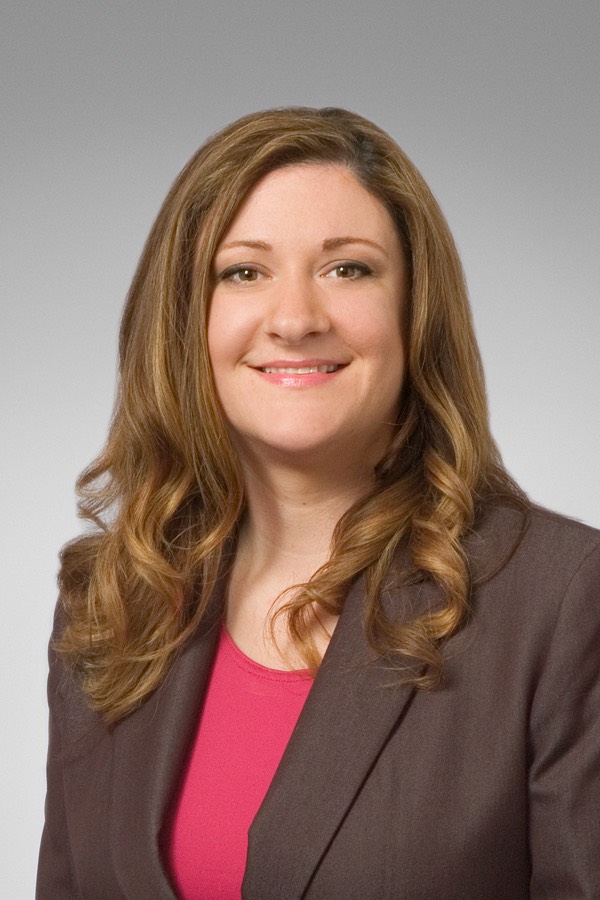
Rosemary Radich
Principle Data Scientist, American Veterinary Association
"The Journey to Becoming a Data Scientist: Valuing Different Perspectives"
Abstract
Businesses and organizations are looking to leverage the power of big data through data science, but turning buzz words into action can be a struggle. There are a wide variety of ways in which data can be used to drive insights, predict human behavior, and optimize business outcomes. Algorithms can predict what types of coffee people will drink, music they listen to, type of financial service they will purchase, or how often owners will take their pet in for a check up. In order to successfully leverage data science innovations, employers need workers with a variety of backgrounds, skills, and specializations – hiring students from a wide variety of fields from math, engineering, sociology, business, anthropology, and more. Advanced machine learning, AI, and predictive analytics require technical skills, but analyzing a wide variety of data requires subject matter expertise and the ability to successfully communicate and collaborate with other data and social science experts. Data science is at the forefront of innovative technology globally, and locally here in Wichita – applying data engineering, analytics, and visualization to all industries and areas of society. Come learn how students, teachers, and industry leaders can use a combination of skill and diversity to execute on innovative ideas.
Rosemary Radich is Principal Data Scientist for the American Veterinary Medical Association, where she leads data strategy and delivers data science insights for the veterinary profession. Radich uses her data science expertise to serve more than 95,000 members and promote the AVMA’s mission to protect, promote and advance the needs of all veterinarians and those they serve.
Her work has resulted in multiple patents for proprietary analytics products and processes, and Radich frequently addresses business conferences and industry groups, advising business leaders how the power of data and analytics can drive results across all areas of their business. She has served as a featured speaker at Microsoft Ignite as well as conferences for Esri and Google. Radich has appeared as a subject matter expert for the AccuWeather Network and her team’s work with Spotify was featured on the Today Show.
In addition to her work in the veterinary profession, Radich has over a decade of experience leading data science teams and initiatives across various industries such as finance, technology, and media. Prior to joining the AVMA, Radich was Director, Data Science at AccuWeather where she led AccuWeather’s global weather data science team, which serviced all lines of business for a global audience and more than half of Fortune 500 companies. Under her leadership, AccuWeather’s big data and analytics initiatives grew, and her team expanded to provide data science expertise for all of the company’s business units.
In addition to analyzing weather data, Radich has data science experience in retail, transportation, health and fitness, sports, music and entertainment, safety and security, and economic trends. Before joining AccuWeather, Radich was an Analyst at Cox Communications, where she conducted operational analysis to find ways to increase efficiency, and played a key role in the company’s transition from the Cisco telephone platform to Avaya. Prior to Cox, she was a Senior Analyst for Meritrust Credit Union, where she managed and performed analysis for leadership to drive revenue and decrease expenses. Radich earned a master’s degree in sociology from Wichita State University, with a focus on quantitative and qualitative methodologies. As a graduate student, Radich has work published for analysis of income, household labor, sexual assault, marriage and parenting time, and women in male-dominated sports.
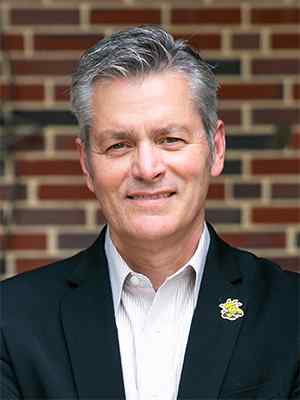 Dr. Richard Muma
Dr. Richard Muma
President, Wichita State University
"Opening Remarks"
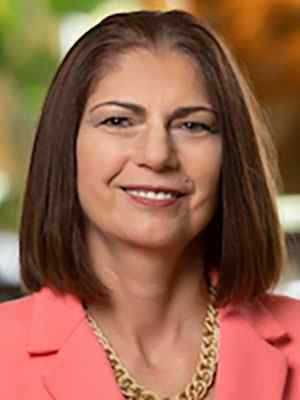 Dr. Sue Abdinnour
Dr. Sue Abdinnour
Omer Distinguished Professor in Business, Business School
"Opening Remarks"
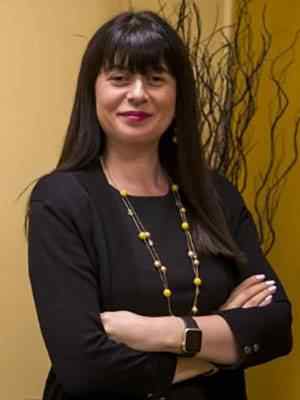 Dr. Larisa Genin
Dr. Larisa Genin
Dean, W. Frank Barton School Of Business
"Dean's Panel: Data Analytics at WSU: Current state and a vision for the collaborative future"
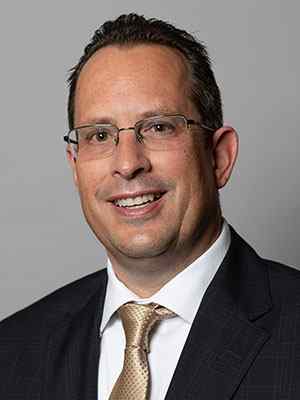 Dr. Andrew Hippisley
Dr. Andrew Hippisley
Dean, Fairmount College of Liberal Arts and Sciences
"Dean's Panel: Data Analytics at WSU: Current state and a vision for the collaborative future"
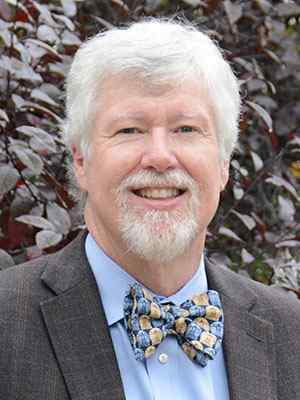 Dr. Gregory Hand
Dr. Gregory Hand
Dean, College of Health Professions
"Dean's Panel: Data Analytics at WSU: Current state and a vision for the collaborative future"
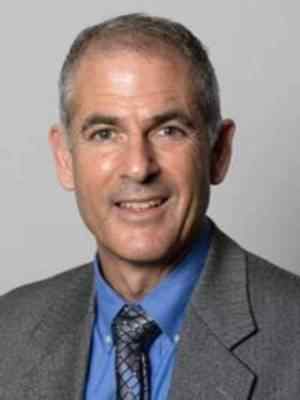 Dr. Anthony Muscat
Dr. Anthony Muscat
Dean, College of Engineering
"Dean's Panel: Data Analytics at WSU: Current state and a vision for the collaborative future"
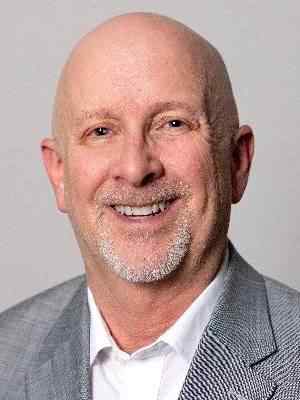 Dr. Clay Stoldt
Dr. Clay Stoldt
Interim Dean, College of Applied Studies
"Dean's Panel: Data Analytics at WSU: Current state and a vision for the collaborative future"
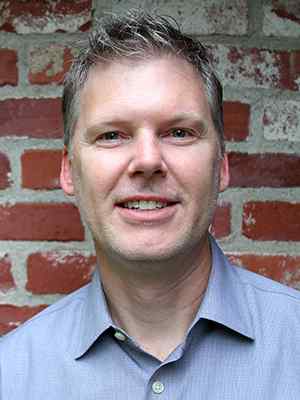 Dr. Jeremy Patterson
Dr. Jeremy Patterson
Jeremy Patterson, Dean, College of Innovation and Design, and Interim Executive Director for Innovation & New Ventures
"Dean's Panel: Data Analytics at WSU: Current state and a vision for the collaborative future"
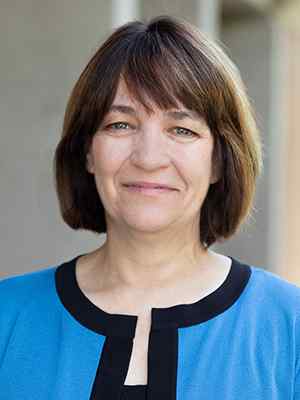 Dr. Colleen Pugh
Dr. Colleen Pugh
Dean, Graduate School
"Dean's Panel: Data Analytics at WSU: Current state and a vision for the collaborative future"

Dr. Lowell D. Ebersole
Chief Medical Officer at Wesley Healthcare
"Improving the Patient Experience: Using Data to Transform Health Systems."
Abstract
The changing landscape of healthcare is creating a demand for health data analytics to identify trends that directly influence health outcomes. Advanced data analytics methods are used to capture and communicate information to improve patient care and monitor patient safety in health care systems through innovative operating strategies and clinical expertise. With shifts in trends in practice and value-based cost strategies, insights can be drawn from health data that inform on use of resources, practitioner performance, tracking health of the populations and predicting risk factors for chronic disease. HCA Healthcare - Wesley Healthcare uses data from more the 27 million patient encounters each year to develop clinical protocols and discover what works and what may need changed in a healthcare system to establish new standards of care.
Biography
Dr. Lowell Ebersole received his Doctor of Osteopathy from Des Moines University in 2001. He completed his Family Practice Residency at Via Christi in 2004 (Chief Resident - 2003-2004). Dr. Ebersole practiced as a Hospitalist for many years. Early in his career he was a Hospitalist at Wesley and more recently he practiced as a Hospitalist at Via Christi. He has had a number of leadership positions during his career including President of the Via Christi Medical Staff and Medical Director of the Hospitalist Program. Dr. Ebersole started in the role of Associate Chief Medical Officer at Wesley Healthcare in January 2019. He became the Chief Medical Officer in August 2019. His community activities include Central Plains Health Care Partnership/Project Access Board Member and Steering Committee Member for Young Life Wichita. Dr. Ebersole is married with four children.

Chris Noyes
Senior Manager, Deloitte Consulting
"Data Analytics in a Smart Factory"
Abstract
Coming Soon.
Biography
Chris helps companies address their burning supply chain issues with analytics. He has led analytics projects addressing poor on-time delivery, high cost of quality, and low asset efficiency. To do so, he has leveraged several cognitive technologies including natural language processing, machine learning, and computer vision.
Chris holds an MBA from Washington University in St. Louis, a B.S. in Electrical Engineering from Northeastern University, and a M.S. in Machine Learning and Artificial Intelligence from the Georgia Institute of Technology College of Computing.
Prior to pursuing his MBA, Chris wrote artificial intelligence algorithms for DoD intelligence agencies.
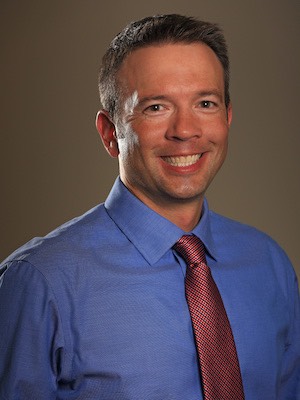
Travis Scheopner
Data and Analytics Talent Development Program Manager, Koch
"Business Analytics in Action"
Abstract
Travis Scheopner will present examples of how his team is utilizing innovative technologies and evolving resource talent to develop advanced analytics capabilities such as machine learning and augmented/artificial intelligence. Travis will present real world use cases demonstrating how his team is applying analytics to predict and prescribe actionable decisions across multiple domains including Operations, Supply Chain, Commercial, and Finance.
Biography
Travis earned a bachelor’s degree in Accounting from Friends University and an M.B.A. with a concentration in Business Analytics from Wichita State University. Travis has been employed by Koch for eight years. Travis started his career in IT as a software developer for a tax solutions company. Travis also spent several years in the medical IT field prior to joining Koch. Travis and his team are actively engaged in several advanced analytics projects serving multiple capabilities in Koch Ag & Energy Solutions.
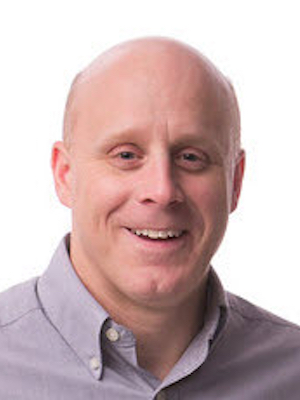
Chad M. Gericke
Head of Wichita Operations, Airbus Americas
"Visual Management and Data Analytics in an Engineering Services Environment"
Abstract
Airbus Americas, Engineering needs to have a good understanding of business operations, and technical knowledge in order to satisfy all the customer requirements successfully. The continual objective is to answer the question “How do we know we’re winning?”
Our analytics journey began with a need for harmonization and optimization of data processes across Airbus Americas. Key to this was development of a visual management philosophy fueled by self-service data analytics capabilities for better insight and improved decision-making at both the strategic and tactical levels of our company.
To support this objective, Airbus Americas deployed a private, cloud-based analytics platform hosted by Amazon Web Services. The environment utilizes Alteryx and Tableau Server data analytics toolsets for direct connection to live data sources, automatically creating interactive operational performance management reporting in the areas of Project Management, Business Services, Finance, HR, IT, & Engineering Design Quality.
Our presentation explores our analytics platform architecture and provides a look at a series of visual dashboards we use to manage operational performance in a non-manufacturing environment.
Biography
Chad Gericke is the Business Operations Manager for the Airbus Engineering Center in Wichita, KS. He has over 30 years’ experience in the US military & civilian sectors with extensive focus on strategic planning, program/project management, production operations, financial management, budget development & execution, cost analysis, and personnel development.
Chad’s strengths are analytical problem solving, organizational development, and integration of all aspects of business operations. He is widely recognized for his ability to define new processes, create stability while incorporating organizational change, and bring diverse groups together to pursue a common goal within a firm or among partner institutions.
Chad is a graduate of the United States Air Force Academy and spent 23 years serving his country in the Aircraft Maintenance and Logistics career fields. He is a past member of the US Department of Commerce Transportation Advisory Committee and recently completed a six year term serving on the Governing Board of Directors of the Cosmosphere – International SciEd Center & Space Museum located in Hutchinson, KS.
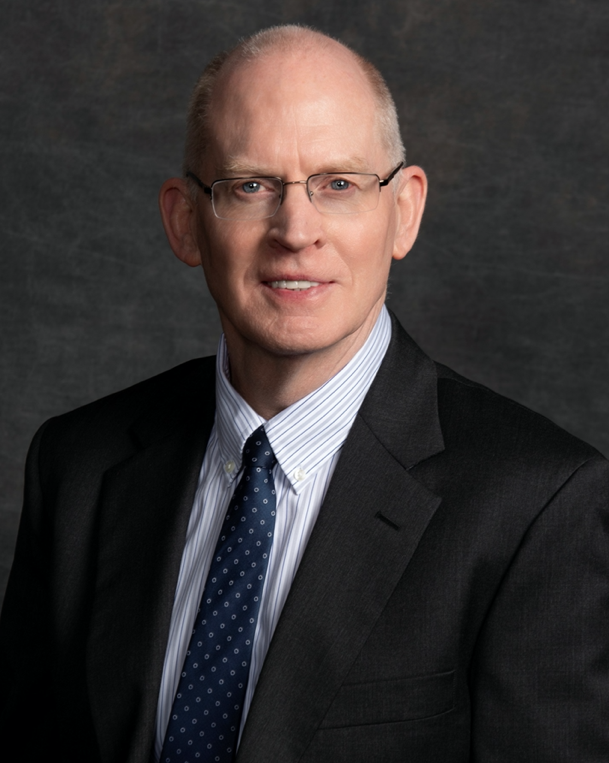
Dr. David Wright
Chief Data Oficer, WSU
"Analytics and Data-Driven Decision Making at WSU"
Abstract
Learn what it takes to create an agile enterprise-level data system for real-time data-driven decision-making. Topics covered include data governance, operating within a hybrid data lake system, deploying AI to identify ROI, student success, forecasting and more.
Biography
David Wright received his doctorate from Purdue University before coming to Wichita State University (WSU) in 1993 as a professor and serving as the university’s Chief Data Officer (CDO) since 2014. During his time at WSU, he has served as Associate Graduate Dean, Associate Vice President, and Interim Chief Information Officer (CIO). In addition to his duties as CDO, he is also the senior data scientist and database architect overseeing data governance, enterprise data warehousing and hybrid lake data systems, analytics and artificial intelligence, enterprise reporting, and institutional research related offices and operations.
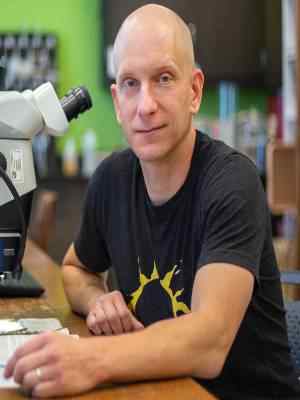
Dr. James Beck
Assistant Professor, Department of Biological Sciences
"Genomics research and teaching using the K-State BeoCat cluster"
Abstract
My research into plant diversity and evolution increasingly involves the analysis of large genomic datasets. After the demise of the WSU High Performance Computing cluster I began using the Beocat cluster at Kansas State University. Beocat is available without cost to any educator in the state of Kansas, and I have found their system and support to be outstanding. Beyond my own research needs, I also heavily incorporate Beocat into my “Computing for Biologists” course in the Biology Department. Brief examples of teaching and research applications will be presented.
Biography
James Beck is an associate professor in the Biological Sciences Department at Wichita State University. He received his undergraduate degree in Biology from Eastern Kentucky University and his PhD in Biology from Washington University in St. Louis. After postdoctoral experiences at Duke University and the University of Wisconsin-Milwaukee, he joined WSU in 2013. Research in the Beck Lab focuses on clarifying plant biodiversity and examining evolutionary pattern in widespread plant species. Most Beck Lab projects feature the utilization of plant museum specimens as sources of DNA for genomic analysis. Dr. Beck’s teaching includes courses in ecology, plant diversity, computing, and evolution.
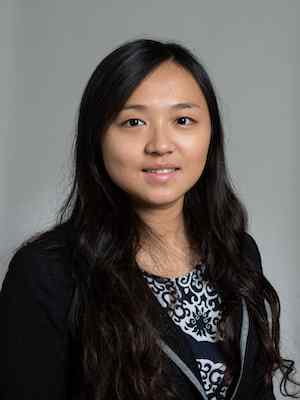
Dr. Siyu Wang
Assistant Professor, Department of Economics
"Here, There, and Everywhere - How to Use Data to Make Better Business Decisions"
Abstract
Dr. Siyu Wang will discuss how to conduct A/B testing and data analysis in industry. Specifically, she will incorporate her research to illustrate how to accurately measure causal effects of online advertising, promotion, and customer behavior.
Biography
Dr. Siyu Wang is an applied microeconomist who uses experiments, data and game theory to understand behavior. She is an assistant professor of Economics at Wichita State University. Previously she served as a behavioral economist and data scientist at Ford Motor Company and as an assistant professor at Missouri State University, where she co-directed a behavioral economics laboratory. She received her Ph.D. in economics from George Mason University in 2016. Her research approach relies on insights from experimental economics, in the tradition of Nobel laureate Vernon Smith, to investigate individual and group behavior and managerial policies. Her research is published in Games and Economic Behavior, Journal of Economic Behavior & Organization, Journal of Economic Psychology, Journal of Neuroscience, Psychology, and Economics.

M. Jason Vandecreek
Special Projects Associate, Community Engagement Institute
"The Evolution of Tools to Support Data-Informed Decision Making and Communication Arts"
Abstract
Increasing the capacity of research teams to use modern technologies and methods for collecting, organizing, analyzing, and communicating insights from data.
Biography
M. Jason Vandecreek is a research associate at WSU assisting each of the 6 centers within the Community Engagement Institute. Jason finds great value in helping to identify and architect custom solutions where technology intersects with public health and community enrichment. He initially joined the Community Engagement Institute in 2012, working on projects for the Center for Applied Research and Evaluation (CARE).
Previous work includes software and systems management for electronic health records, interactive / digital marketing agencies, non-profit workflow systems, learning management systems, data analysis automation toolkits, and communications strategy.
Outside of work, Jason enjoys photography, tennis, gardening, and serving on the board of directors for Trees for Life / Teach for Life, International.
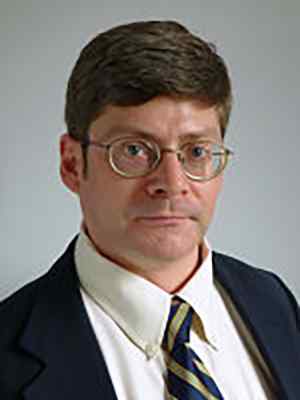
Dr. William Miles
H. Russell Bomhoff Professor of Economics, Department of Economics
"Regional Convergence"
Abstract
Previous studies on regional convergence in the US have employed varied methodologies and yielded different conclusions. Some authors report evidence that convergence has grown stronger in recent decades, while others find recent years have seen an end to convergence. We test for convergence with a method that allows for structural change. We find, first, that there is little overall evidence for convergence within the US. Results also indicate a series of positive breaks in the 1980s, indicating movement away from convergence was pronounced during this decade. Diverging housing costs may have played a role in limiting convergence.
Biography
Bill Miles is a professor in the economics department at Wichita State University. He teaches courses in macroeconomics and econometrics. His research interests include the macroeconomy, international economics, regional economies and the economics of housing.

Dr. Brian Amos
Professor, Department of Political Science
"Big Data in Gerrymandering"
Abstract
Every ten years following a census, American legislatures at every level of government are required to redraw their electoral districts to balance out population changes. Which voters get placed into which districts can have a major impact on election outcomes, and each redistricting cycle, some politicians will use this process to squeeze out an advantage for themselves, a practice known as gerrymandering. In this talk, I'll discuss my work with the Voting and Election Science Team, which has been gathering nationwide data for use in analyzing the 2021/2022 redistricting cycle, and I'll highlight some of the challenges we've faced in the process. How do you collect and standardize data when elections are managed by thousands of different counties and municipalities? How can data measured at different levels of geography be stored to have efficient use in analyzing any district plan? What metrics are used to rate a district plan and what tools are needed to carry out the analysis? I will illustrate my answers with district plans that have already been introduced this cycle.
Biography
Brian Amos is an assistant professor in the political science department at WSU whose research focuses on the role of geography on election administration. He is a principal investigator with the Voting Election and Science Team, which has been collecting precinct-level election data nationwide for use in redistricting, and he has served as a consulting expert in redistricting and voting rights litigation.
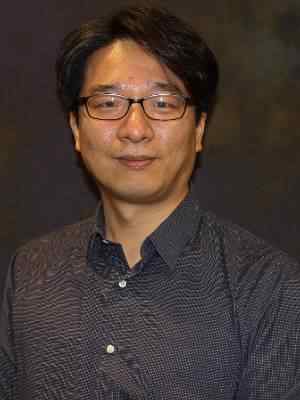
Dr. JaeHwan Byun
Assistant Professor, School of Education
"Learning Analytics; Where are we now? And where are we going?"
Abstract
Title: Learning Analytics; Where are we now? And where are we going? Proposal: Since the concept of analytics was introduced in the field of education, learning analytics became one of the hottest topics in the area nowadays. However, it is also true that the concept is still vague to many educational researchers and practitioners. This presentation tries to clarify first the meaning of learning analytics by comparing it with several similar concepts that may make them confused, such as data analysis, educational data mining, and statistic techniques. And then, the current research trends about learning analytics will be reported with the benefits and issues when applying it in the educational practice.
Biography:
Dr. JaeHwan Byun is an assistant professor of the Master of Education in Learning and Instructional Design program in the School of Education of College of Applied Studies at Wichita State University (WSU). He teaches courses related to instructional design and technology at WSU. The research topics he is interested in include learner engagement, online learning, learning analytics, and digital game-based learning. His career goal is to seek ways to create a learning environment where learners can learn through aesthetic learning experiences, which are engaging, infused with meaning, and felt as coherent and complete.
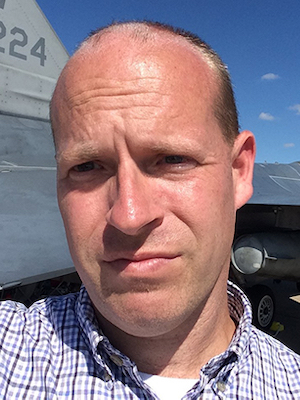
Dr. Terrance Figy
Assistant Professor, Department of Mathematics, Statistics and Physics
"A Cloud-based Monte Carlo Event Generator"
Abstract
I will give an overview of the BeoShock High Performance Computing Cluster (HPC) at Wichita State University. I will use my own research on the Higgs boson as an example. I will show the audience how the simulation of scattering processes involving the production of a Higgs particle can be performed utilizing the BeoShock HPC system and present results of simulations of a performed using the BeoShock HPC system.
Biography
Terrance Figy is an Assistant Professor in the Department of Physics, Mathematics, and Statistics. Terrance Figy is a theoretical particle physicist. He became interested in mathematics and physics at a very young age. He attended the Summer Science Camp at the University of Wisconsin-Eau Claire (UWEC), Eau Claire, WI in 1992. This experience fueled his desire to become a particle physicist. He started an undergraduate degree in physics and mathematics in 1996 at UWEC and graduated in 2000. Subsequently, Terrance Figy completed a Ph.D. in physics at the University of Wisconsin-Madison in the 2006. He has held postdoctoral appointments at the University of Durham, Durham, United Kingdom, European Organization for Nuclear Research, Geneva, Switzerland, and the University of Manchester, Manchester, United Kingdom.

Dr. Mathew Muether
Associate Professor, Department of Mathematics, Statistics, and Physics
"Observing the Subatomic Building Blocks of the Universe with Computer Vision"
Abstract
The universe is composed of a selection of subatomic particles whose properties and interactions are described in the Standard Model of Particle Physics. Particle physicists study these interactions and look for new particles with precision particle detectors exposed to natural and man-made sources. As the complexity of these searches grows, researcher have turned to computer vision to help extract rare signals from huge sets of experimental data. Prof. Muether will describe this background and research happening in his group at Wichita State University to study neutrino interactions in the NOvA and DUNE experiments using convolutional visual networks.
Biography
Professor Mathew Muether is an Associate Professor of Physics and member of the High Energy Physics research group in the Department of Mathematic, Statistics, and Physics. He is a member of two major international experimental collaboration studying the properties of neutrinos and their interactions with matter, NOvA and DUNE. On NOvA, he is the Institutional Board representative for WSU and has served as physics convener for the Neutrino Interactions Analysis and Data-quality Working Groups, NOvA Executive Committee member, experimental run coordinator, and member of the data production group. On DUNE he currently serves as the Institutional Board Representative for WSU. He is leading the design of the DUNE near detector simulation and reconstruction software as convener of the Near Detector Simulation and Reconstruction Physics Working Group. He is a member of the DUNE Computing Consortium serving as the near detector liaison for the group. He also serves as a Level 3 Manager on the DOE DUNE Project for the Near Detector Temporary Muon Spectrometer (TMS) leading simulation, analysis, and prototyping efforts.
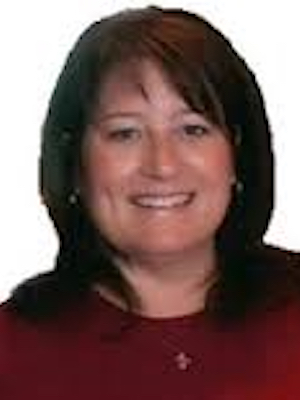
Dr. Linda Moody
Assistant Teaching Professor, School of Nursing
"Collect, Input, Report, Repeat...How to Use Data to Impact Patient Care"
Abstract
Linda has been collecting and reviewing hospital quality core measure data since 2010. Linda will share information from her experience in reviewing standard of care and treatment processes, data collection for various healthcare programs, and the impact results can have on reducing complications, leading to better patient outcomes. Although the collection and reporting of healthcare data is necessary to identify issues, Linda will be sharing the more important aspects of using the data to address areas that can improve patient care – specifically better documentation to show care provided, process improvements and standards, lifelong learning, and tackling healthcare staffing issues.
Biography
Linda obtained her Associate’s and Bachelor’s degrees in Nursing from Newman University. She worked as a nurse in acute care hospitals for many years, learning about the healthcare systems and processes involved in providing patient care. After working in leadership and management positions in hospitals, she identified the importance of getting an MBA, which she earned from Baker University. Linda has been teaching in nursing, either part-time or full-time, since 2003, including being the director of two nursing programs. She has been teaching at Wichita State University since 2015. Since 2010, Linda has also been working in the Quality department for a medical center and national healthcare organization. These positions have involved data collection, analysis, and reporting of healthcare information related to standard of care and improving patient outcomes. In 2016, Linda earned her Doctor of Nursing Practice degree in Organizational Leadership to enhance her role as a nurse leader.

Dr. Abu Asaduzzaman
Associate Professor, Department of Electrical Engineering and Computer Science
"A Real-Time Imaging System to Assist Surgical Procedures"
Abstract
Crucial delaying factors for development of real-time surgical imaging solutions include long execution time due to poor medical infrastructure and inaccuracy in processing mammogram images. In this work, we introduce a machine learning based imaging technique that supports breast cancer surgical procedures by analyzing mammograms in real-time with excellent accuracy. Experimental results using 1500 known mammograms show that the imaging mechanism has the potential to identify benign and malignant cells with more than 99% accuracy. Experimental results also show that the rate of change in pixel values can be used to determine the ROIs with more than 98% accuracy.
Biography
Abu Asaduzzaman received the PhD and MS degrees, both in Computer Engineering, from Florida Atlantic University. Currently, he is working as an Associate Professor in the Electrical and Computer Engineering Department at Wichita State University. His research interests include computer architecture and high performance computing in healthcare technology. He has published 17 refereed journal and more than 85 peer-reviewed conference articles. He has received research grants from Kansas NSF EPSCoR, Nvidia, NetApp, and more. He is a member of IEEE, ASEE, and the honor society of Phi Kappa Phi, Tau Beta Pi, Upsilon Pi Epsilon, and Golden Key.
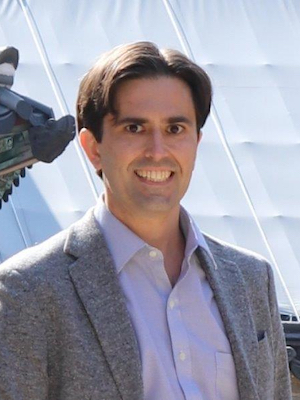
Dr. Richard Ross Gruetzemacher
Assistant Professor, Business Analytics
"The Power of Deep Learning"
Abstract
Over the past decade deep learning has begun to transform how computers can be used for a wide variety of tasks, from medical image processing to digital assistants. Dr. Ross Gruetzemacher has been working on deep learning research for six years. In this presentation he will discuss some powerful applications of deep learning, including his research involving the design and testing of an automated system for detecting lung cancer from CT scans. He will conclude by discussing further applications of deep learning that can be expected to have a significant impact over the next decade."
Biography
Dr. Ross Gruetzemacher is an assistant professor of business analytics in the Barton School of Business. He is the lead instructor for the MSBA program and his primary research and teaching interests involved advanced analytics such as machine learning and deep learning. He has published in numerous peer reviewed outlets on these topics and has given presentations on AI throughout the world. Prior to his PhD in business Dr. Gruetzemacher worked as a data scientist and as a computational engineer.
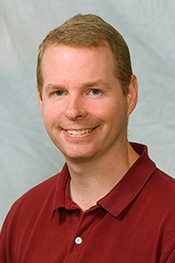
Dr. Daniel Andresen
Professor, Kansas State University, Department of Computer Science
"How to use BeoShock"
Abstract
We plan to provide a general overview of HPC resources on campus, followed by a tutorial on how to use BeoShock. Workshop topics will include basics of logging in, compiling/debugging programs, using the scheduler, and file management. We encourage attendees to bring their laptops and participate.
Biography
Daniel Andresen is a professor of computer science at Kansas State University and director of the Institute for Computational Research. He received a bachelor’s degrees in computer science and mathematics from Westmont College in 1990, a master’s in computer science from California Polytechnic State University in 1992, and a doctorate in computer science in 1997 from the University of California, Santa Barbara. Upon completing his doctorate, he joined the faculty at K-State as an assistant professor.
At a high level, Andresen’s research is in distributed systems, ranging from sensor networks monitoring bovine health levels to high performance computing systems. His research often intersects with his role as director of the Institute for Computational Research in Engineering and Science, which works to build the cyberinfrastructure foundation to allow K-State to successfully compete at the national level as well as oversees campus research HPC clusters including K-State's Beocat and the new BeoShock system at WSU.
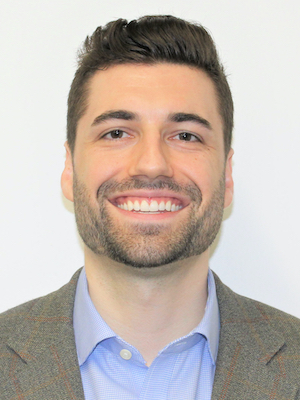
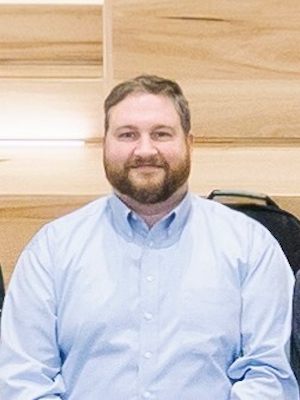
Stefan Dosa and John Bickley
Account Managers, Nvidia
"Using GPUs in Advancing Scientific Discoveries"
Abstract
Scientific computing using GPUs is a a rapidly growing and power tool across many domains. This presentation with provide an introduction to NVIDIA Computing including a brief overview of NVIDIA’s background & current work across the enterprise space of Higher-education & research. The talk will also describe the NVIDIA Software Stack, tools, and our GPU accelerated software repository, NGC. Additionally, NVIDIA Education Resources will be highlighted.
Stefan Dosa Biography
Stefan has been working at NVIDIA for 2.5 years across the domains of Higher-ed & Research, Healthcare & Life Sciences, and Manufacturing. He recently moved into the role of account manager, dedicated to bringing NVIDIA's GPU Accelerated computing capabilities to the Higher-ed & Research ecosystem. Stefan operates as the lead point of contact for all things NVIDIA related in supporting Wichita State University. His primary focus is driving compute enablement through awareness, adoption, and optimization via NVIDIA software & hardware with regards to the spaces of HPC, AI, Virtualization & more.
John Bickley Biography
John Bickley has been a Solutions Architect at NVIDIA for 3+ years, and has been working in the high performance computing workspace in a variety of roles for the past 10+ years. He is a dedicated solution architect for the NVIDIA ecosystem for multiple industries. This includes experience from edge deployment of computer vision models to large cluster deployment of Deep Learning training environments.
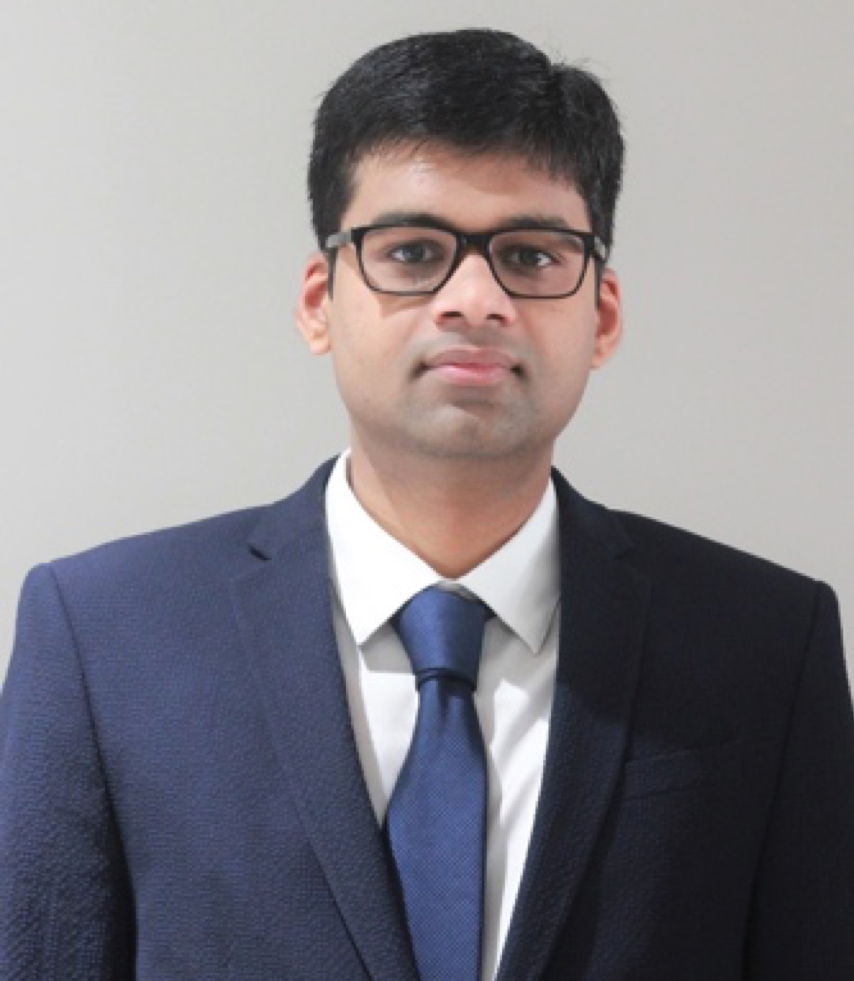
Dr. Saideep Nannapaneni
Assistant Professor, Department of Industrial, Systems, and Manufacturing Engineering
"Introduction to Analytics with Python"
Abstract
Recent advancements in data collection and storage have led to the availability of huge amounts of system-related data that can be used to provide additional insights to its performance. Data analytics is the process of analyzing data to provide insights and inform the decision-making process to improve a system’s performance. The talk covers three types of analyses that are generally performed to inform the decision-making process: (1) data pre-processing, (2) model building, and (3) data visualization. The talk provides an introduction to the tools available in the Python programming language for data pre-processing, model building, and data visualization.
Biography
Saideep Nannapaneni has been an Assistant Professor with Industrial, Systems, and Manufacturing Engineering at Wichita State University since Spring 2018. He received his Bachelor’s degree from the Indian Institute of Technology Madras in 2012, Master’s and PhD degrees from Vanderbilt University in 2015 and 2017 respectively. His areas of interests are in data analytics, reliability analysis, and health monitoring with applications to industrial, aerospace, and mechanical systems. He is a member of the Institute of Industrial and Systems Engineers (IISE). He teaches courses on engineering statistics, descriptive analytics, reliability engineering, and uncertainty quantification.
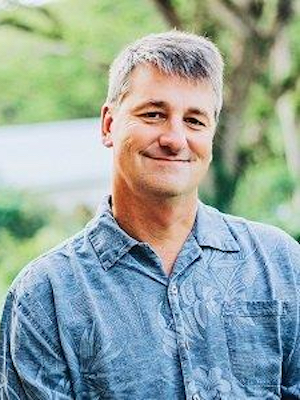
Mark Stewart
Account Manager, ESRI
"Spatial Analysis and Data Science in GIS"
Abstract
GIS enriches traditional data science by incorporating spatial characteristics such as proximity, coincidence, and connectivity in creating models and making predictions. This session will introduce the fundamentals of spatial analysis and provide real world examples of how GIS helps better understand complex problems, leading to better decisions. Participants will use ArcGIS Online, part of Esri’s Geospatial Cloud, to explore and answer questions from a spatial perspective.
Biography
Mark Stewart is an Account Manager with Esri, the world leader in Geographic Information Systems (GIS), and he loves maps. From a childhood encounter with an encyclopedia atlas, Mark developed and nurtured a passion for what Esri calls the Science of Where. This has led him to a M.S. in Environmental Science and an almost 30 year career in the GIS industry, 25 of which have been spent at Esri teaching and developing GIS courses, and now, helping universities leverage the power of ArcGIS to cultivate the next generation of spatial thinkers and doers.

